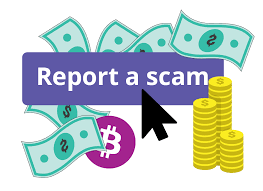- Ponzi Schemes promise high returns with little risk but actually use new investors’ money to pay earlier investors. An example is BitConnect, which collapsed in 2018 after promising 40% monthly returns, resulting in over $1 billion in losses.
- Pump and Dump Schemes: Scammers artificially inflate a cryptocurrency’s price through false information, then sell their holdings when the price peaks, causing it to crash. An example is the 2021 Squid Game Token, which surged 83,000% before collapsing when developers cashed out.
- Phishing Scams: Criminals create fake websites, emails, or social media accounts that look legitimate to steal private keys or login information. An example is the 2020 Ledger data breach, where scammers created fake Ledger websites to steal users’ private keys.
- Fake Initial Coin Offerings (ICOs): Scammers create impressive-looking but fraudulent projects to raise funds, then disappear with investors’ money. Examples include the Pincoin and iFan ICOs, which stole $660 million from investors in 2018.

How to Spot Cryptocurrency Scams
- Unrealistic Promises: Be wary of guaranteed high returns with minimal risk.
- Lack of Transparency: Legitimate projects are clear about their teams, business models, and goals.
- Pressure to Invest Quickly: Scammers often create artificial urgency to prevent thorough research.
- Poorly Designed Websites or Whitepapers: Legitimate projects invest in clear, professional communication.
- Unsolicited Offers: Be cautious of unexpected offers, especially those with high-pressure tactics.

How to Protect Yourself
- Do Your Research: Thoroughly investigate projects, teams, and their track records before investing.
- Use Trusted Exchanges and Wallets: Stick to reputable platforms with strong security measures.
- Enable Two-Factor Authentication (2FA): Add an extra layer of security to your accounts.
- Be Skeptical of “Too Good to Be True” Offers: Trust your instincts if something seems suspicious.
- Stay Educated: Keep up with the latest trends, threats, and security practices in the cryptocurrency space.

The article emphasizes that while cryptocurrency offers exciting investment opportunities, it requires caution and vigilance to avoid the sophisticated scams that cost investors billions in 2023 alone.
How to Prevent Cryptocurrency Scams

Based on the article information, here are effective strategies to protect yourself from cryptocurrency scams:
Do Thorough Research
- Investigate the project team, their experience, and track record
- Read the whitepaper carefully and understand the project’s purpose
- Consult knowledgeable sources if technical aspects seem unclear
- Check community forums like Reddit or Discord for red flags

Use Trusted Platforms
- Stick to well-established, reputable exchanges and wallets
- Look for platforms with strong security measures and proven history
- Verify websites carefully (check URLs for minor misspellings)
- Use hardware wallets for significant holdings

Strengthen Security Practices
- Enable Two-Factor Authentication (2FA) on all accounts
- Use 2FA apps rather than SMS-based verification (protects against SIM swapping)
- Create unique, strong passwords for each platform
- Never share your private keys or seed phrases with anyone

Practice Healthy Skepticism
- Question “too good to be true” investment opportunities
- Be wary of guaranteed returns or low-risk promises
- Don’t rush investments due to artificial urgency or FOMO
- Remember that legitimate projects don’t need high-pressure tactics

Stay Educated and Informed
- Follow reputable cryptocurrency news sources
- Join legitimate communities to stay updated on security threats
- Learn about new scam techniques as they emerge
- Attend industry events or webinars about security best practices

By combining these preventative measures, you can significantly reduce your risk of falling victim to cryptocurrency scams while still participating in the market.
Secure browsing

When it comes to staying safe online, using a secure and private browser is crucial. Such a browser can help protect your personal information and keep you safe from cyber threats. One option that offers these features is the Maxthon Browser, which is available for free. It comes with built-in Adblock and anti-tracking software to enhance your browsing privacy.
By utilising Maxthon Browser, users can browse the internet confidently, knowing that their online activities are shielded from prying eyes. The integrated security features alleviate concerns about potential privacy breaches and ensure a safer browsing environment. Furthermore, the browser’s user-friendly interface makes it easy for individuals to customise their privacy settings according to their preferences.
Maxthon Browser not only delivers a seamless browsing experience but also prioritises the privacy and security of its users through its efficient ad-blocking and anti-tracking capabilities. With these protective measures in place, users can enjoy the internet while feeling reassured about their online privacy.
In addition, the desktop version of Maxthon Browser works seamlessly with their VPN, providing an extra layer of security. By using this browser, you can minimise the risk of encountering online threats and enjoy a safer internet experience. With its combination of security features, Maxthon Browser aims to provide users with peace of mind while they browse.
Maxthon Browser is a reliable choice for users who prioritise privacy and security. With its robust encryption measures and extensive privacy settings, it offers a secure browsing experience that gives users peace of mind. The browser’s commitment to protecting user data and preventing unauthorised access sets it apart in the competitive web browser market.
